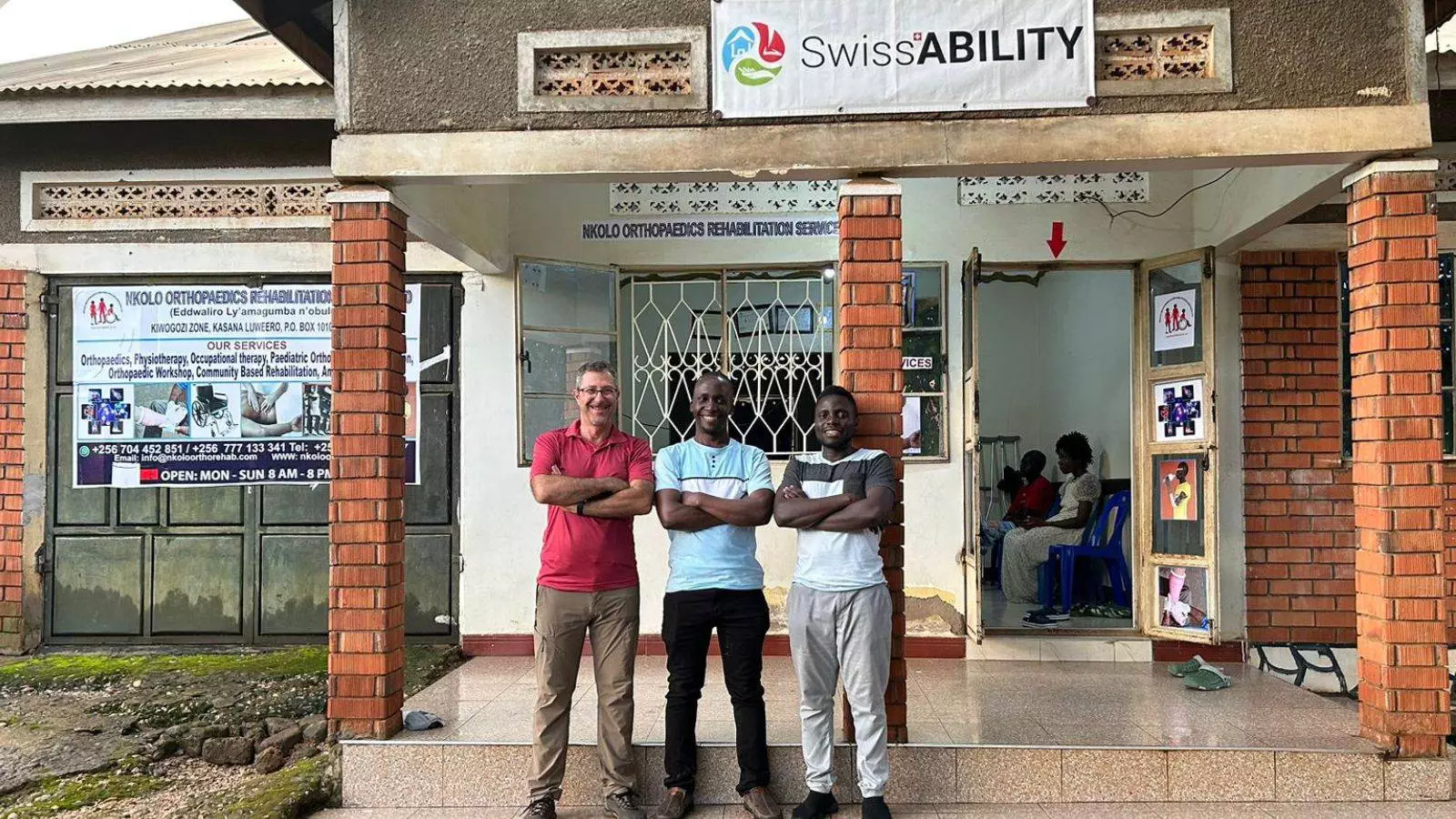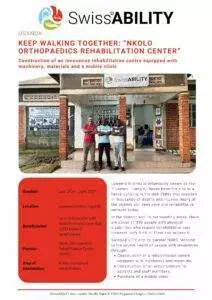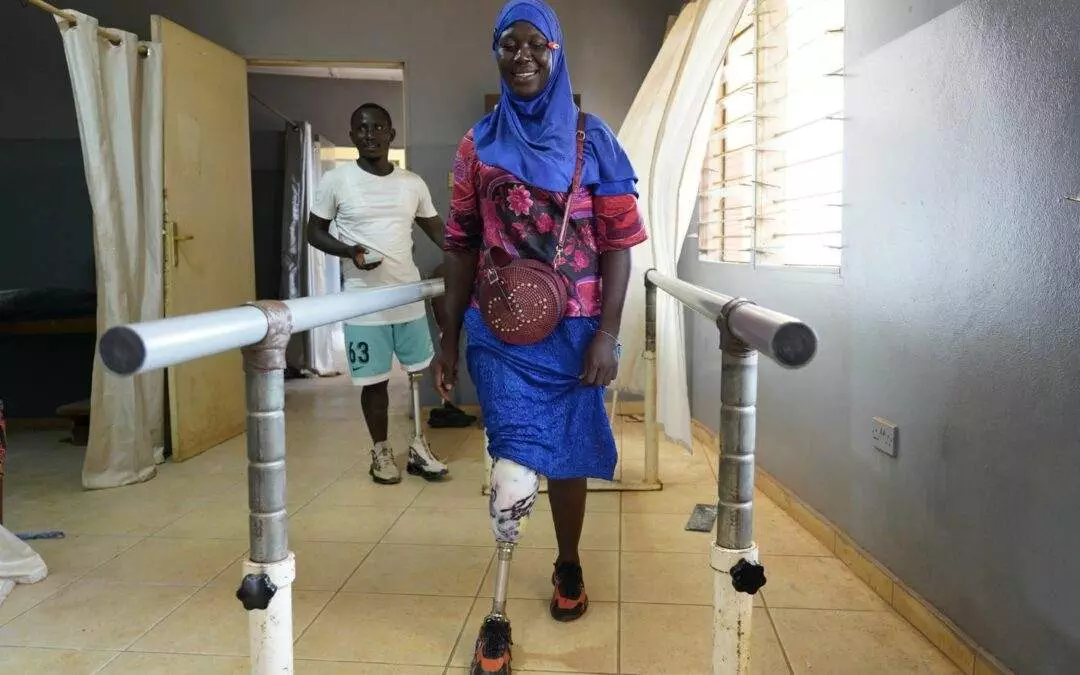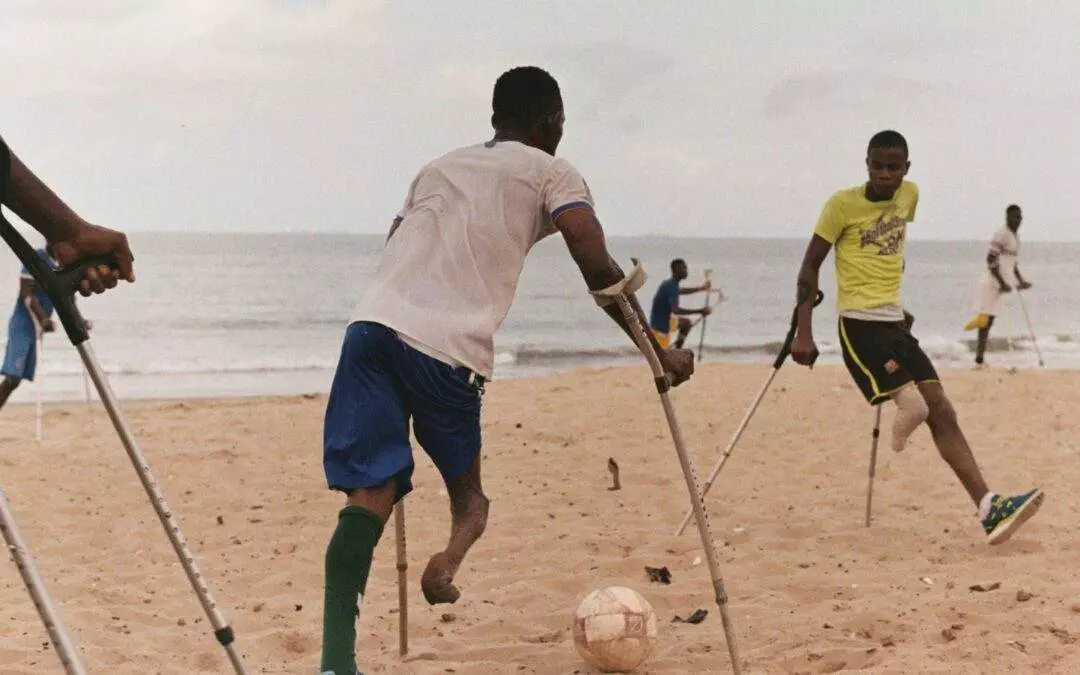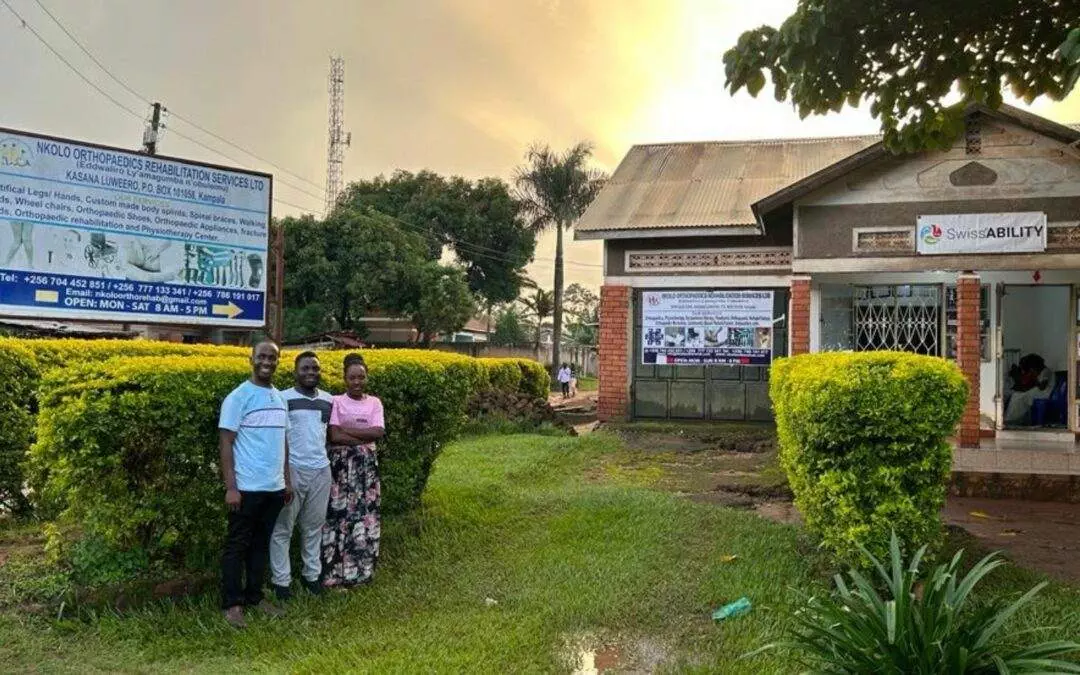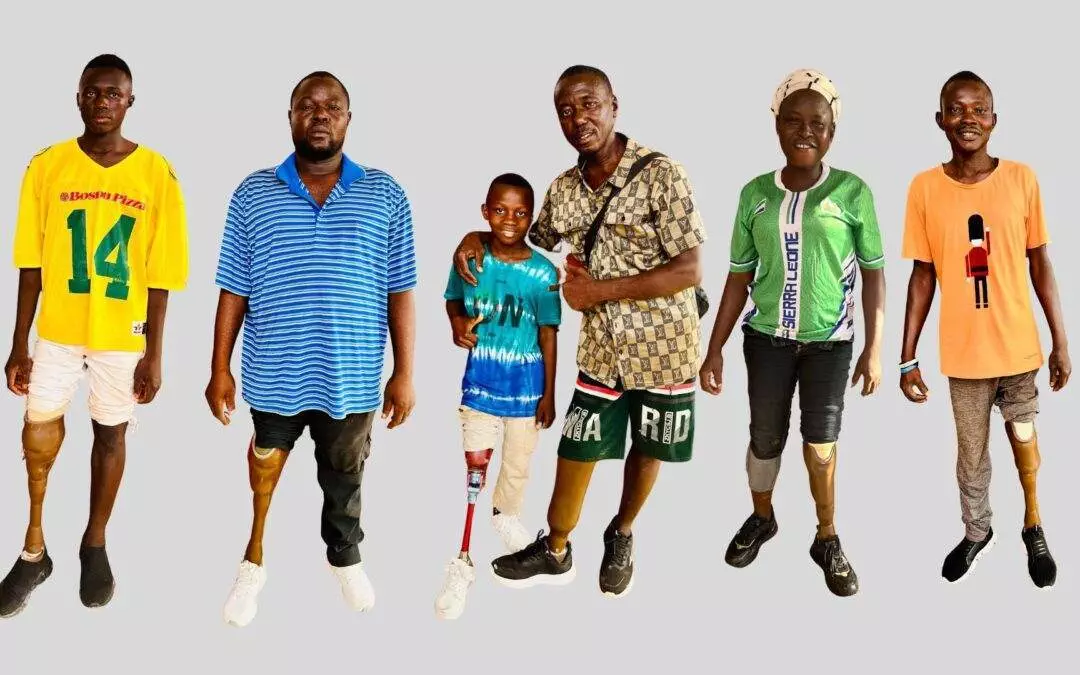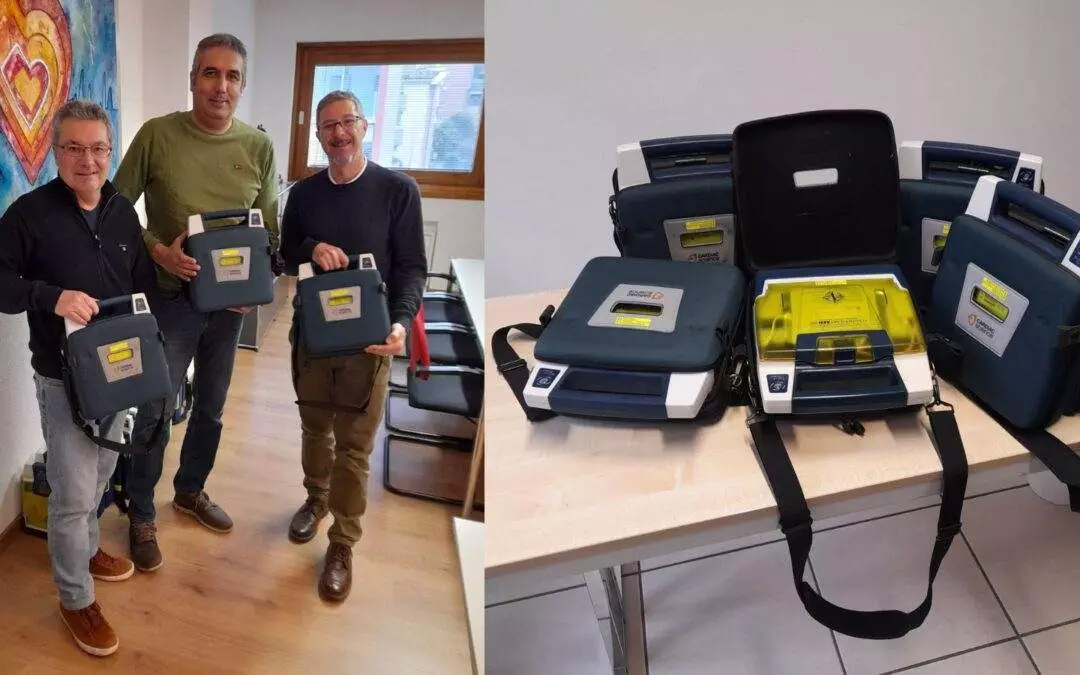July 2024 – June 2027
Luweero District, Uganda
Up to 600 people with disabilities and more than 3,000 indirect beneficiaries
Ability in physical rehabilitation
Nkolo Orthopaedics Rehabilitation Center (NORC)
According to Uganda’s national statistics, 12.4% of the population live with some form of disability; this means that more than 6 million people require physical rehabilitation or other types of assistance. However, there are only ten rehabilitation centres across the country, which often do not offer adequate services, involve long and costly travel to access facilities, or are financially inaccessible for less affluent amputees who require assistance.
Luweero District, located in the centre of the country, is infamously known as the “Luweero Triangle”, haven been the site of a fierce uprising in the mid-1980s that resulted in thousands of deaths and injuries. Many of the victims still seek care and rehabilitative services today. In the District and its surrounding areas, there are about 11’350 people with physical disabilities who require rehabilitative care. However, only 5.8% of them can access it due to the lack of locally based facilities or the inability to pay for the services.
Despite this high demand for orthopedic and physiotherapy services, existing structures are not adequate to meet all the needs of the population.
The SwissABILITY project, in partnership with the local partner Nkolo Orthopaedics Rehabilitation Center (NORC)aims to provide comprehensive services to people with disabilities in Luweero and the surrounding areas through the construction of an innovative rehabilitation centreequipped with machinery and materials to produce prosthetics and orthotics. The facility will include an orthopedic workshop, a physiotherapy unit, an occupational therapy unit, and a speech therapy unit. Additionally, the plan includes the construction of accommodation for both the centre’s staff coming from afar as well as the users from remote areas and need care that spans several days.
The building will be powered by solar panels, a clean and sustainable energy source that will ensure continuity of work even during frequent power outages. This will also reduce electricity costs.
In order to provide rehabilitative services s in rural areas, the project plans to procure a mobile clinic.
